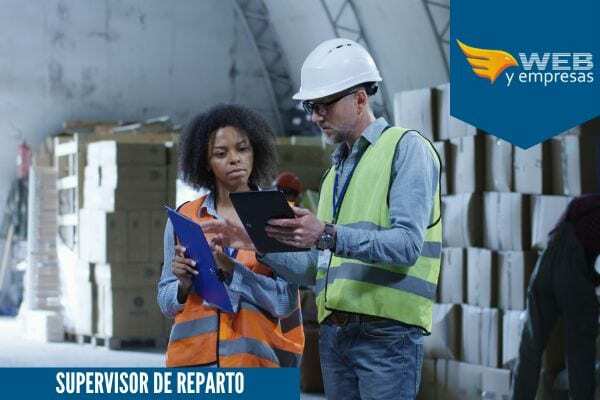The interviews They are usually exchanges of ideas and opinions that are carried out through a conversation between two or more people, where the interviewer in charge of asking all the necessary questions.
The members of the interview allow themselves to dialogue in order to determine an approach on the part of the professional. As the talk flows, spontaneity leads to a free dialogue that in turn generates suggested topics that can be easily debated.
Advertisements
The interview must be reciprocal, the interviewer applies collection techniques through structured questions or through free conversations. In either case, an outline or form should be used that contains various questions that give a focus to the conversation that will serve as a guide.
Due to this, in every interview there will always be two clear roles, that of a interviewer who is the one who fulfills the function of directing the interview through the domination of the dialogue or the topic to be discussed and a interviewed that you must answer all the questions and at the end both will close the interview.
Advertisements

In this article you will find:
How is the structure of the interview?
A interview favorable allows to know who is the right person to assume the position of the vacant position available. She must be understood by a series of questions that have order and solidity.
Advertisements
As it is a qualitative method, it is designed to collect the necessary information through a conversation between at least two people. The interviewer needs to have a number of questions available to help guide the conversation.
To conduct the interview favorably, should be of great knowledge to the interviewer, everything that includes the interview, so you could collect all the information you need from the interviewee. Among the parts that make up the interview are:
Advertisements
The greeting
The interviewer when greeting, will break the ice immediately in the interview, this is because it will be the first time that she faces the interviewee.
The introduction
It is the way to reassure the interviewee a bit. It is based on general comments that will facilitate the evolution of communication. This allows the interviewed person to realize that they may be able to control a certain situation and the nerves that arise at that moment.
Advertisements
Personal information
It is the way the interviewee knows himself, he can even be asked questions related to some information about her family.
Vocational training
These are the questions that allow us to know in detail about the intellectual level, since they are data found in the curriculum synthesis that was sent to the company. During the conversation, the interviewer may ask if the studies carried out have any relation to the position he is opting for.
Daily or leisure activities
These are the entertainment activities that are run outside of the workplace.
Remuneration
It is necessary to know what is the salary that the applicant wants, in this way you can know what is the approximate salary that other organizations pay.
Work or professional experience
Here we will address the various work experiences that the interviewed, as well as the areas that she has performed and the activities that she feels capable of doing. You may be asked why you want to change jobs and what your previous salary was.
Knowledge
It is necessary to know if she has other skills, such as if she speaks another language, if she handles the Internet or Microsoft platforms.
Motivation
The interviewer should talk about the expectations regarding the position he / she aspires to in the interview, which ones are your objectives, what time you have available and the goals you want to achieve in the future within the business.
Fired
When this moment arrives, the interviewee has the opportunity to clarify any doubts they may have and the farewell is formalized, wishing the applicant luck.
What is a structured interview?
Is a formal and orderly interview, since it determines an approach in a standard way where a series of questions that have been previously programmed are asked, this with the In order that the person who is interviewed has the opportunity to answer in a safe and concrete way what has been asked.
For this reason, the interviewer is limited when asking the questions, because do not flow during the development of the interview, but are already formulated in a questionnaire.
This type of interview has the advantage of present information that is fairly easy and simple to interpret, which is totally flattering for your analysis. Furthermore, the applicant does not need a great deal of technical experience as long as the question schedule is properly followed.
Despite this, it has the disadvantage of limit any topic that you want to deepen During the interview, this is because it does not allow the natural flow of the dialogue.
What is an unstructured interview?
It is totally opposed to structured interview, since it is open and flexible, even when there is a specific research objective governed by questions, this means that the answers do not need to be composed of deep content and organized.
The role of the interviewer is to ask the questions without following a schedule of order in the way of leading the questions and formulating them.
There are many advantages that this type of interview has, since it is a freely adaptable system to achieve a harmonious climate where topics of interest are developed. However, it has the disadvantage of being a more difficult interview to conduct due to the time it takes for the interviewer to elaborate on the topics.
The person in charge of conducting the interview must have sufficient information and technical skills in the topics to be discussed, so that you can have enough arguments and opinions that deepen the topic and can dialogue with fluency.
Types of interviews
When it comes to job interviews, it can be said that there is a great classification of them. It is very useful for applicants to know them and thus prepare adequately. Next, different structures will be analyzed where the different types of interviews:
Structured interview
It's about a type of conversation that is not impromptu, its organization is well controlled in terms of the order of the questions and the tone of voice used during the development of the topic to be discussed. The person doing the interview should ask the same questions of all applicants.
The most important thing in this type of interview is the harmony that must exist during its development and seek the way to make it as similar as possible with each of the applicants. If this is the case, better results can easily be obtained and interference from outside aspects will be avoided.
To carry out the evaluation of the profile of each applicant, scoring systems are used and it is applied when the work are automated and there are a large number of applicants, but there is no time to take decisions.
Free interview
It is an interview where various open questions are developed to the applicant in relation to work obligations. The interviewee benefits from being able to proactively lead the conversation during the interview, which is a great way to demonstrate her communication skills.
Semi-structured interview
During the development of the interview, the interviewer must apply a mixed strategy, where they are incorporated both structured and open questions. It is one of the most common, since it allows the applicant to demonstrate her abilities to clearly and openly defend her aspirations.
Interview by competencies
Many companies only want to recruit professional individuals who have a high level of potential and take great care in executing a certain job. For this reason, competency interviews that are well restricted, according to the needs of the organization.
Personal interview
It is the best known, it is carried out by means of a representative of the company and an applicant for the position. This has the objective of deepening the reactions of the applicant, his capacities and her personal and professional aptitudes.
Group interview
Within this type of interview, there are some differences in relation to the number of interviewers and interviewees who participate. It can be done in several ways:
- The panel interview, where several interviewers interview a single applicant.
- The online interview, where the applicant meets with different people who have different hierarchical levels.
- The group dynamics interview, where several applicants are requested to observe how they act in games, debates and in simulated situations, it can be said that it is very useful to verify principles of initiative, leadership, persuasion and how much capacity you may have to work in team.
Importance of a job interview
The job interview It is a very important and key aspect for human resources departments, that way you can get to know the applicant applying for the job in greater depth.
Although the interview is not the total guarantee of acquiring the contract, it is the one that provides the information on experience, training and motivations What is needed from the candidate, all these aspects are very helpful in predicting how efficient and favorable it is to take on the vacant position.
Before any interview, it is necessary to have a concrete definition of the functions, training, skills and experience required by the job, as this will make it easier for the interviewer to expect to find exactly the profile the job is looking for business.
Factors that can spoil an interview
There are some factors that can lead to impair the smooth running of an interview by the applicant, among them we can mention:
- Lack of knowledge that is needed for the position you want to acquire.
- Not knowing how to express yourself clearly and concisely.
- Do not prepare prior to the interview, in terms of presentation and knowledge.
- Demonstrate disinterest during the development of the interview, associated with the position to aspire and the organization.
- Show excess self-confidence, this shows an arrogant and conflictive person.
- Responding only with monosyllables and not looking into the eyes when speaking, only shows a person that he suffers from extreme shyness.
- Presenting yourself to the interview with an inappropriate appearance, with a high level of carelessness.
- Make inappropriate comments that are not related to the topic of the interview.
- Not knowing how to justify the elements found within the curriculum synthesis.
- Demonstrate inflexibility and not be able to adapt to certain situations in the organization.


